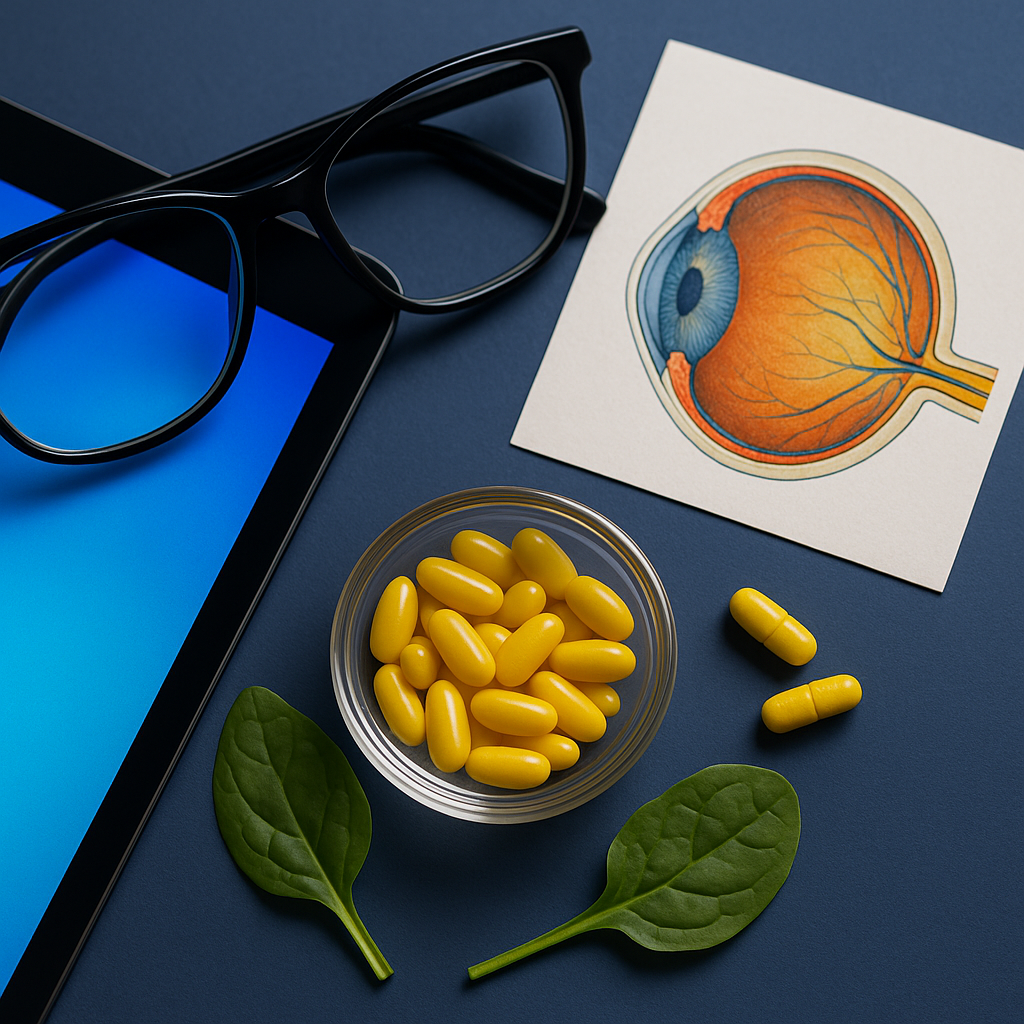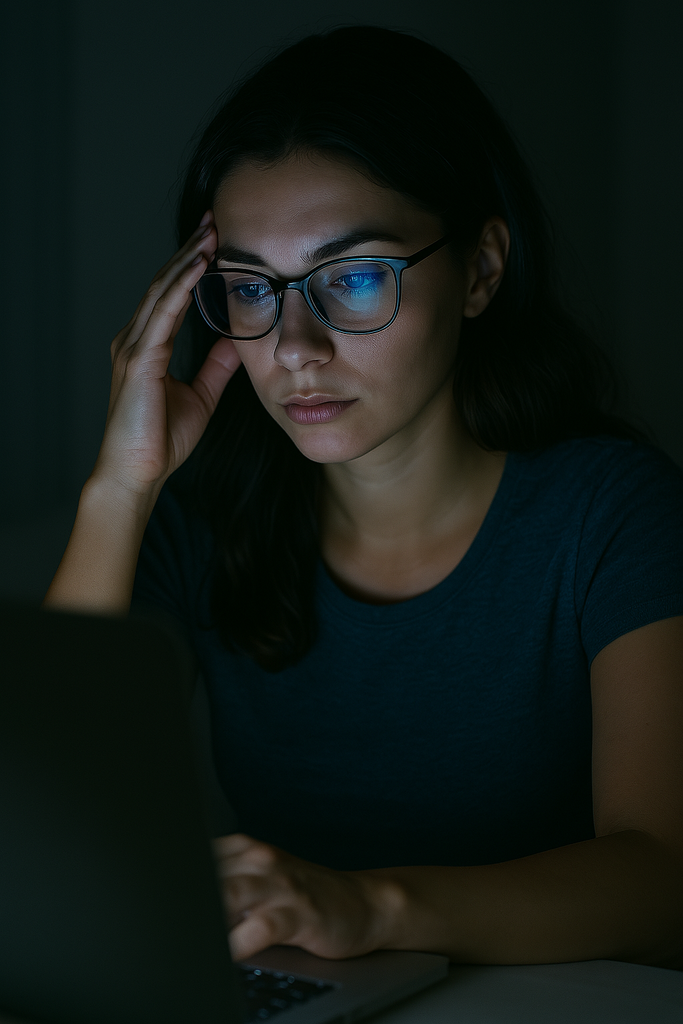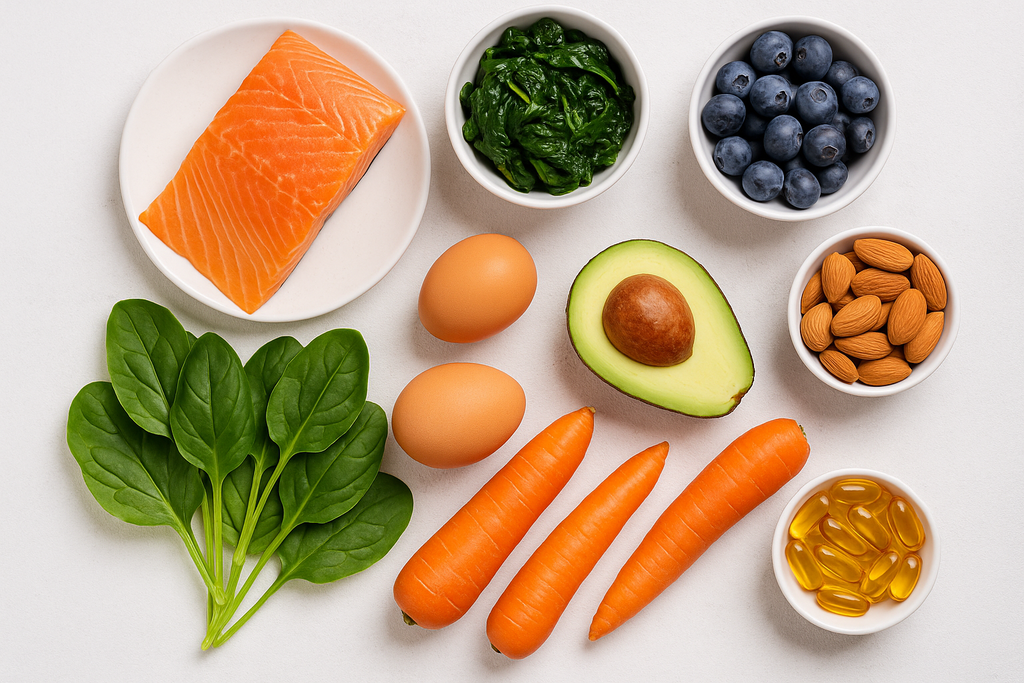News — lutein and zeaxanthin
The Science Behind Lutein & Zeaxanthin for Screen-Induced Eye Fatigue
antioxidant for eyes blue light protection carotenoids eye health digital eye strain digital wellness eye health nutrients how to protect eyes from blue light lutein and zeaxanthin lutein dosage for eye health lutein eye benefits lutein for eyes macular pigment natural eye supplements natural vision support protect eyes from screens reduce eye fatigue screen fatigue relief visual performance zeaxanthin for screen time zeaxanthin supplement
From smartphones and tablets to laptops and LED monitors, modern life is illuminated by screens. While our digital world offers convenience, it also brings an unintended consequence—digital eye strain. Common symptoms include dryness, blurred vision, fatigue, and headaches, affecting people of all ages. With screen time steadily increasing, many are seeking natural ways to protect their eyes, and that’s where lutein and zeaxanthin come in.
These two powerhouse carotenoids are often associated with long-term eye health, but their benefits go far beyond preventing age-related conditions. Emerging research now shows that lutein and zeaxanthin may offer relief from the daily discomfort of digital eye strain. Let’s explore how these natural pigments work, what the science says, and how to incorporate them into your screen-centric lifestyle.
How Blue Light Affects Your Eyes and How to Protect Them
20-20-20 rule blue light blue light glasses blue light protection computer vision syndrome digital eye strain eye care eye health supplements eye-friendly diet HEV light kids screen time lutein and zeaxanthin macular health natural eye health night shift mode retinal health screen brightness screen fatigue screen time tips sleep disruption
In our modern digital world, screens are everywhere—from smartphones and tablets to laptops and LED lighting. While these technologies make life more connected and convenient, they also emit high-energy visible (HEV) light, commonly known as blue light. You may have heard concerns about blue light’s impact on sleep, vision, and long-term eye health, but how much of it is true—and how can you protect your eyes without ditching your devices?
Blue light isn’t inherently bad. In fact, it's part of the natural light spectrum and plays a role in regulating our sleep-wake cycles. But excessive exposure, particularly from digital screens and artificial lighting, may contribute to digital eye strain, sleep disturbances, and possibly even retinal damage over time. In this article, we’ll explore how blue light affects your eyes, what the latest science says, and how you can take simple, effective steps to protect your vision and preserve your eye health.
How Diet Affects Vision: Best Nutrients for Eye Health Explained
antioxidants for eyes best foods for eye health carotenoids for eyes diet and eyesight eye health eye supplements eye-protective diet foods for better vision foods for eyesight healthy eyes improve vision naturally lutein and zeaxanthin nutrients for eyes omega-3 for dry eyes prevent macular degeneration vision clarity vision nutrition vitamin A for vision vitamin C for eyes zinc and eyesight
Your eyes are intricate organs that rely on a steady stream of nutrients to function optimally. Just like the heart and brain, your eyes benefit immensely from a healthy diet rich in specific vitamins and minerals. From reducing the risk of age-related vision loss to improving night vision and combating dryness, the right foods can be powerful allies in maintaining long-term eye health.
Vision changes are often assumed to be a natural part of aging, but many issues can be slowed—or even prevented—by nourishing your body with the right compounds. In this comprehensive guide, we’ll explore how diet affects vision, highlight the most important nutrients for eye health, and share which foods you should be eating regularly to support crystal-clear sight.



